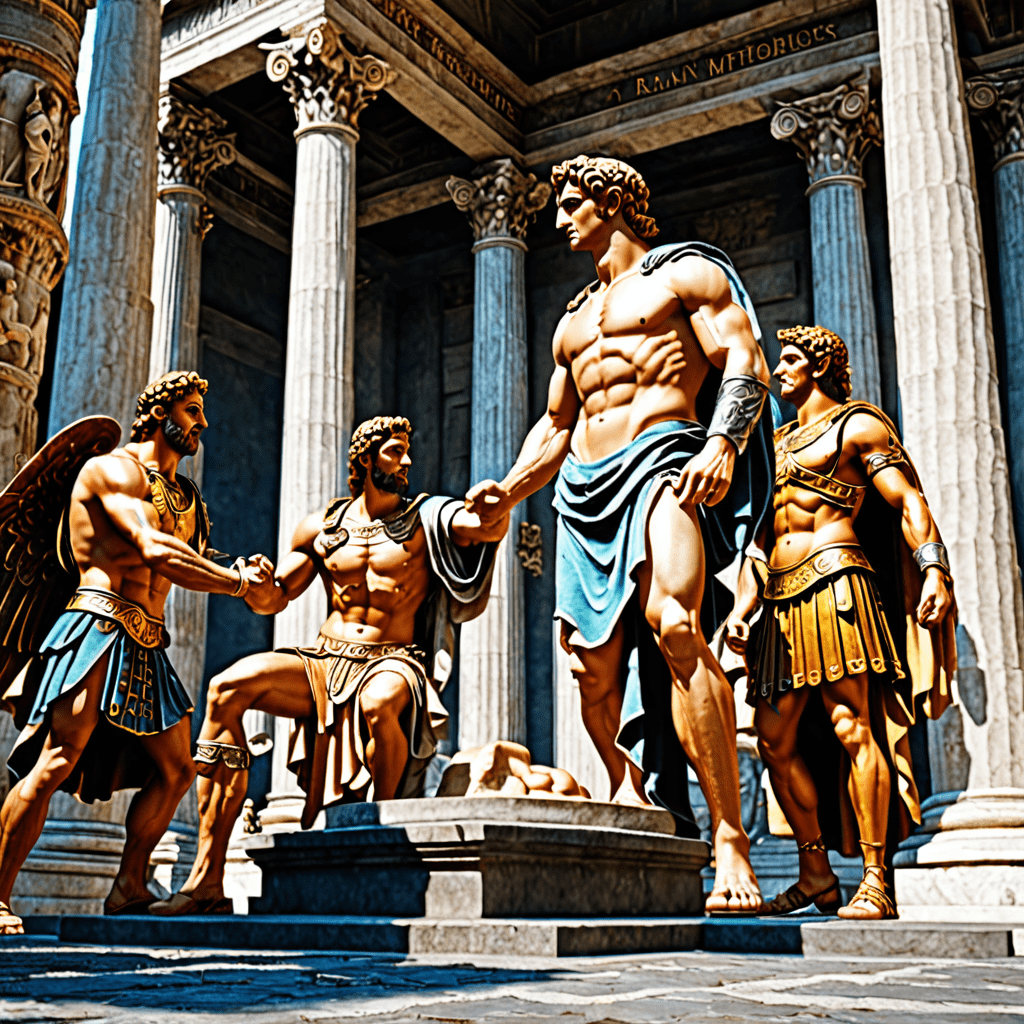Roman Mythology: Exploring the Concept of Unity and Division
The Unity in Roman Mythology
In Roman mythology, there is a significant emphasis on the concept of unity, which is reflected in various aspects of the Roman pantheon and its stories. The Romans believed in a multitude of gods and goddesses, each representing different elements of life and nature. However, unlike the Greek gods who often exhibited human-like flaws and conflicts, the Roman gods were revered for their virtues and unity in purpose. This unity was seen as essential for maintaining order and balance in the world.
The Division in Roman Mythology
While unity was a key pillar in Roman mythology, there were instances of division and conflict among the gods as well. Stories of power struggles, jealousies, and disagreements are prevalent in Roman mythology, adding depth and intrigue to the tales of the pantheon. These divisions often led to consequences for both the gods and mortals, showcasing the consequences of discord and disharmony.
Impact on Roman Society
The concepts of unity and division in Roman mythology had a profound impact on Roman society. The ideal of unity represented stability, loyalty, and order, elements that were highly valued in the Roman civilization. Leaders often invoked the unity of the gods to inspire camaraderie and cooperation among the people. On the other hand, tales of division served as cautionary narratives, warning against the perils of discord and disunity.
Legacy of Unity and Division
Today, the themes of unity and division in Roman mythology continue to resonate in modern culture. The dichotomy between harmony and conflict, cooperation and discord, remains relevant in various facets of society. By delving into the rich tapestry of Roman myths, we can gain a deeper understanding of the complexities of human nature and the importance of striving for unity in the face of division.
Frequently Asked Questions About Roman Mythology
What is Roman Mythology?
Roman mythology refers to the beliefs, stories, and rituals of the ancient Romans, involving their gods, goddesses, and legendary figures. It played a significant role in shaping their culture, values, and societal norms.
How does Roman Mythology Explore the Concept of Unity?
Roman mythology often portrayed gods and goddesses as patrons of various aspects of life and society, emphasizing interconnectedness and unity among individuals and communities. The myths highlighted the importance of collective identity and shared beliefs.
How does Roman Mythology Reflect the Concept of Division?
Despite the emphasis on unity, Roman mythology also depicted conflicts, rivalries, and divisions among gods, leading to wars and power struggles. These narratives reflected the complexities of human nature and the challenges of maintaining harmony in a diverse society.
What are Some Famous Roman Myths Illustrating Unity and Division?
Stories like the founding of Rome by Romulus and Remus showcase both unity (in establishing a city) and division (in their eventual conflict). The tale of Jupiter, Juno, and Minerva competing for the patronage of a city exemplifies the themes of competition and collaboration in Roman mythology.



